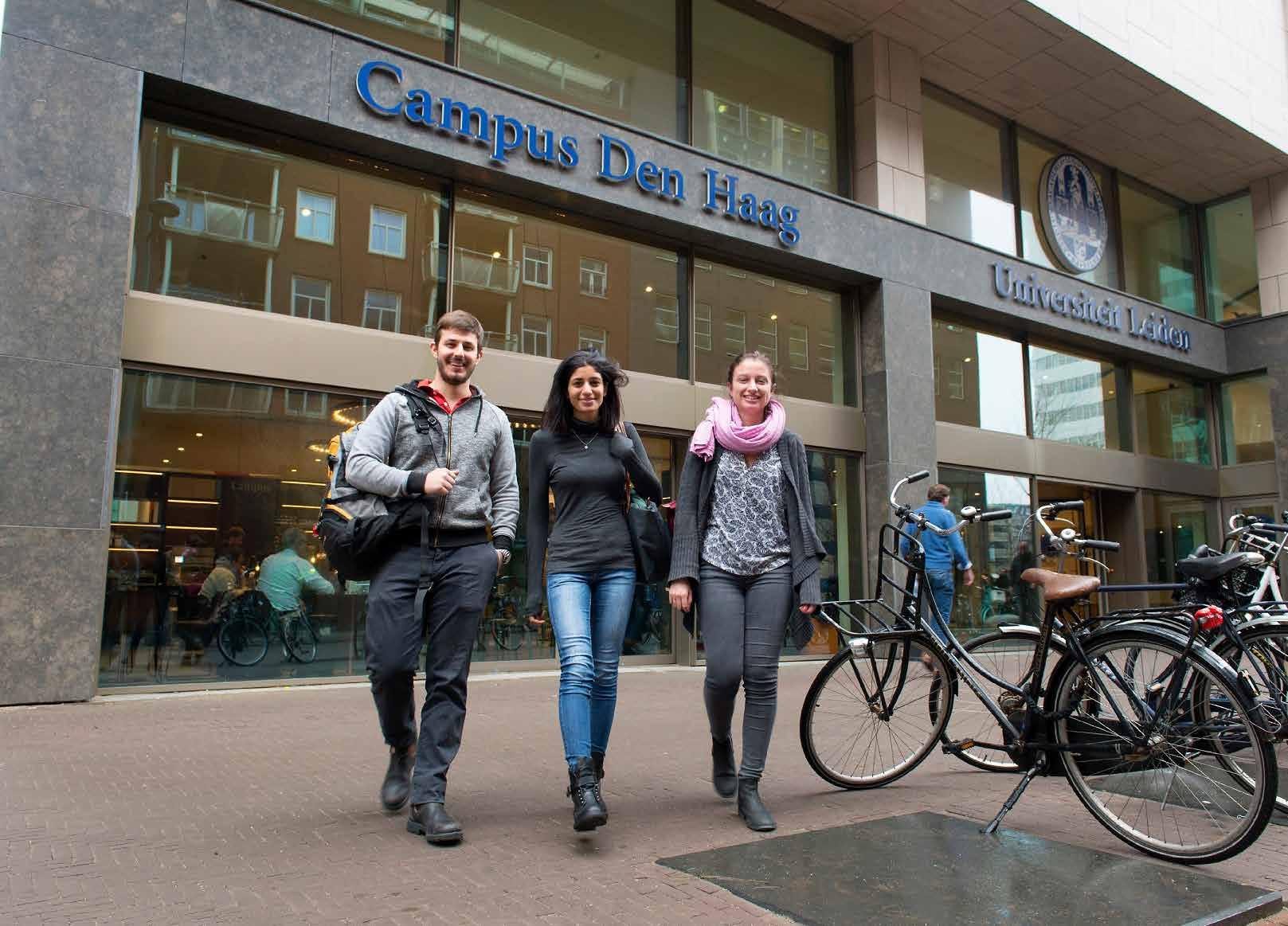
5 minute read
Governance and Global Affairs
from About us 2021
Working on societal issues in The Hague
The Faculty of Governance and Global Affairs in The Hague, city of peace and justice, looks at such global challenges as climate change, terrorism and economic crises from the perspective of governance, political science, law, sociology and economics.
With its interdisciplinary approach, the Faculty fits in well with the national and international organisations in The Hague. It joins in the big debates in society not only with its teaching and research, but also with lectures and discussions. Enterprising by nature, the Faculty seeks connections with other disciplines and innovative forms of teaching.
RESEARCH The academic research at the Faculty is organised into institutes and centres. The staff conduct research in the field of national and international politics, governance, security and urban issues. In their research, they explore complex challenges that go beyond the limits of individual disciplines.
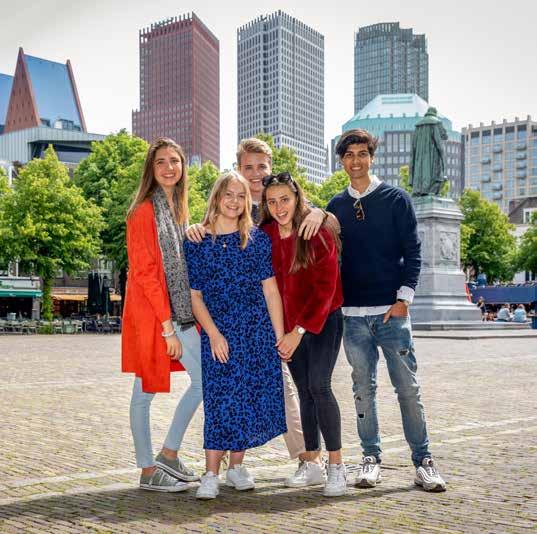
Graduate School
The Graduate School of Governance and Global Affairs is responsible for the PhD programmes at the Faculty.
TEACHING The programmes at the Faculty closely reflect the themes that characterise the city, such as peace, justice, law and public administration and international governance. Despite the turbulent year, 99.8 percent of our lecturers have managed to teach and our pass rate is higher than ever.
Leiden University College The Hague
Leiden University College The Hague (LUC) is Leiden University’s international honours college. LUC The Hague provides an innovative Liberal Arts & Sciences bachelor’s programme for talented and motivated students from all around the world. The focus is on the Global Challenges programme, in which complex global challenges are studied from the perspective of various disciplines.
FACTS AND FIGURES 2020
3,192 students: 2,079 bachelor’s students and 1,113 master’s students
298 staff (177 academic and 121 non-academic)
Institutes:
• Institute of Public Administration • Institute of Security and Global Affairs • Leiden University College The Hague
7 doctorates
LUC was one of the top programmes in Keuzegids, the consumer guide to universities, for the eighth successive year
BACHELOR’S PROGRAMMES
• BA/BSc in Liberal Arts & Sciences: Global Challenges (Leiden University College The Hague) • BSc in Public Administration - Economics, Public Administration and Management - Policy, Public Administration and Organisation • BSc in Security Studies
MASTER’S PROGRAMMES
• MA in Crisis and Security Management • MSc in Cyber Security • MSc in International Relations and Diplomacy • MSc in Public Administration • MSc in Public Sector Management
Professional learning
The Faculty of Governance and Global Affairs is a meeting place not only for students and academics but also for professionals.
Since the beginning of Campus The Hague, its Centre for Professional Learning has offered courses and programmes for professionals who work in governance. The Cyber Security Academy in The Hague offers various short-term programmes such as workshops, training courses and masterclasses. It is a partnership between Leiden University, Delft University of Technology and The Hague University of Applied Sciences.
The Dual PhD Centre makes dual PhD research possible at Leiden University. It offers a Dual PhD programme that enables professionals to combine work and PhD research.
First Security Studies graduates
A fully corona-proof graduation ceremony in the Wijnhaven building on Campus The Hague and the first Security Studies graduates. This day at the end of August was one to remember for the 36 graduates and their families. Not only were they the first group to complete this programme, but they also had to cope with the effects of COVID-19 during their last year and having to celebrate in a socially distanced ceremony. The students were allowed to bring two guests. Those who stayed at home could follow the ceremony via a livestream.
Online wellbeing and culture weeks
The first coronavirus lockdown in the spring of 2020 was particularly difficult for students. The Faculty of Governance and Global Affairs organised two online activities for its students who were stuck at home, possibly feeling lonely and unable to go out: the online wellbeing week and the culture week. The wellbeing week was all about how coronavirus was affecting student wellbeing, and included online sports sessions by the University Sports Centre. In the online culture week, students could see and hear a varied programme from the different cultural disciplines, including top films, virtual museum exhibitions and baroque dance sensation Pearl. One of the highlights was the concert by harp player Catherine Mooreland, recorded on the Spanish Steps in the Wijnhaven building in The Hague.
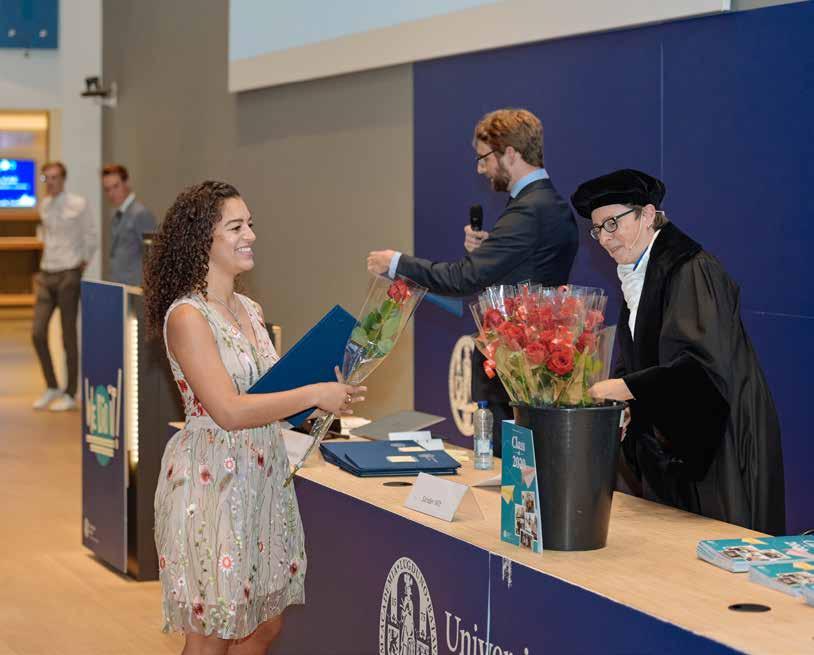
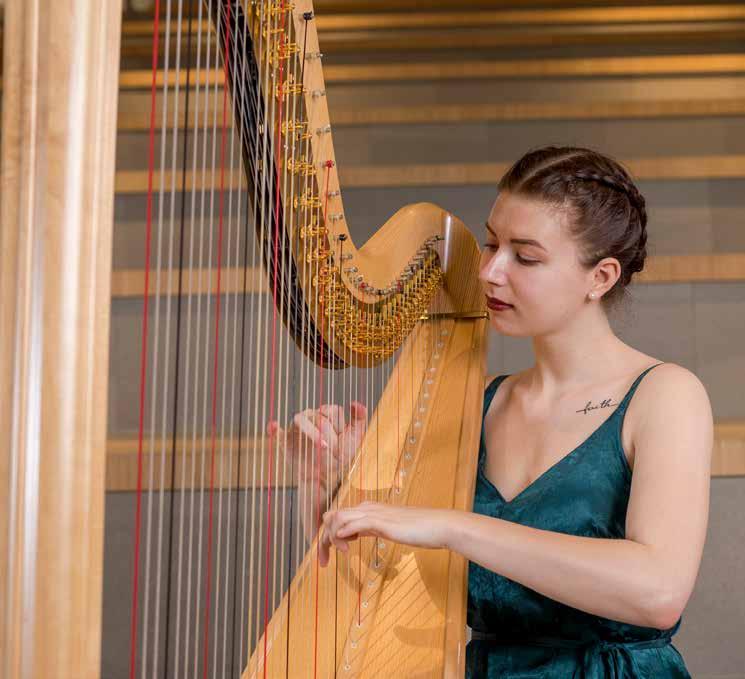
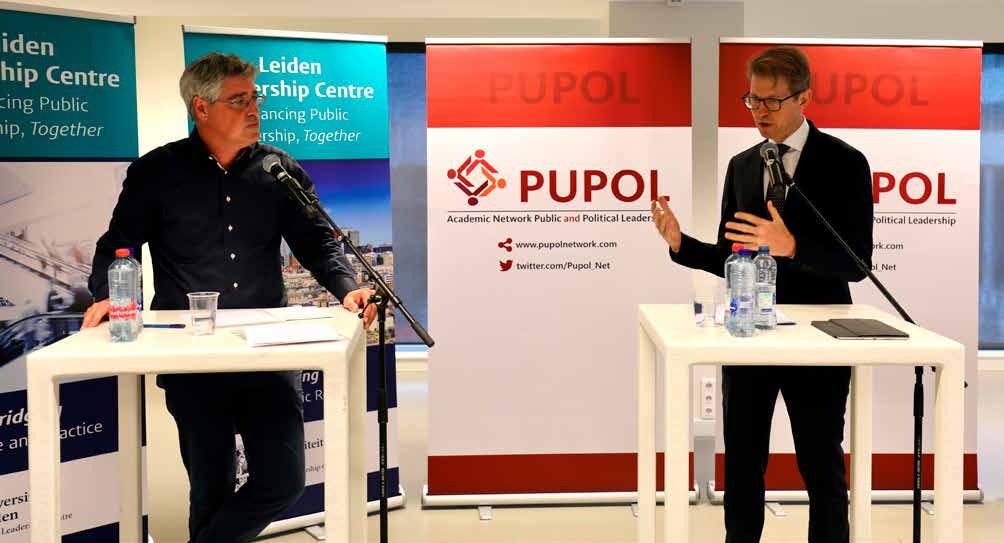
Boost to public leadership
In October 2020, international academics, representatives from the profession and students took part in the online conference Leadership in Progress: Science Meets Practice, organised by the Leiden Leadership Centre. The multidisciplinary exchanges between prominent speakers from academia, politics and the upper ranks of the civil service gave a significant boost to the research on public leadership and developments in this field. Professor Arjen Boin (left) spoke to minister Sander Dekker (right) about his leadership.
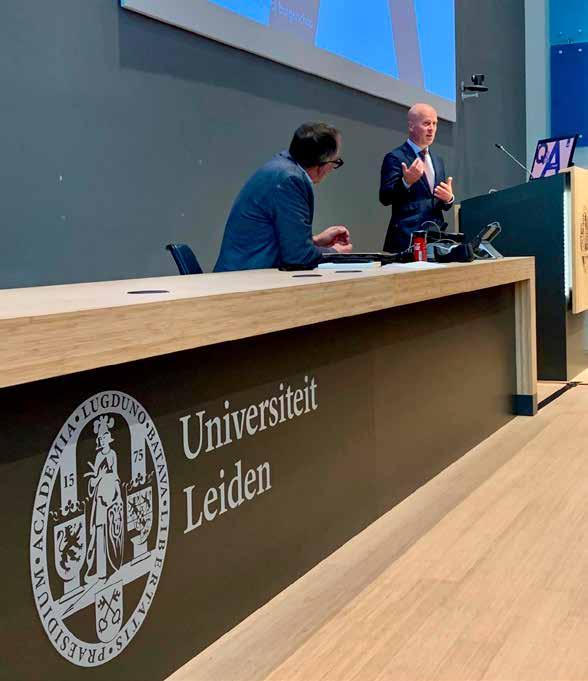
Guest lecture on digital government
How seriously is the government taking digitalisation? What does it entail and will everyone be able to manage in a digital world? State Secretary Raymond Knops (Ministry of the Interior and Kingdom Relations), who is responsible for digital government, gave a lively lecture on this subject in Campus The Hague’s Wijnhaven building in autumn 2020. He spoke openly about government dilemmas, challenges and ambitions, and discussed the matter at length with students from the Faculty. He came under some strong fire, but was happy to talk through the issues and even took extra time after the lecture for questions and comments. Some 20 students attended the lecture in person in the Wijnhaven auditorium and around 380 took part online. Civil servants and stakeholders from the digital sector listened too, and were keen to hear what the students had to say.










